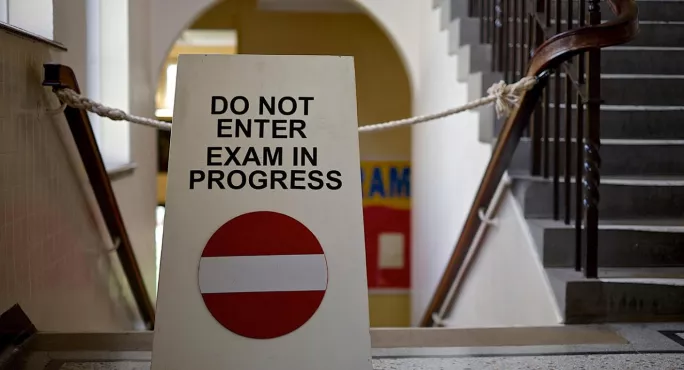Colleges spent over £174 million on fees for exams in a single year, it has been revealed. Figures from college annual returns, provided to Tes by the Association of Colleges, showed that the cost of assessments and exams to the sector stood at £174,419,200 in 2016-17.
This represents 2.5 per cent of total income, meaning that £1 in every £40 colleges earned was spent on assessment. According to the AoC, that means if the bill was cut by half - for example, because there was a reduction in the assessment burden - the roughly £80 million released could pay for 2,000 new FE teachers.
The pressure has been exacerbated in recent years by policy changes, such as the GCSE resit condition. In 2016, when resits became mandatory for students who narrowly missed out on a grade C at school, the number of GCSE English and maths entries in colleges topped 200,000 for the first time - up by 40 per cent from the previous year. That number rose again in 2017.
‘Outrageous expense’
John Hunt, chief finance officer for the London and South East Education Group, which is spread across four college campuses, said: “Exams are an outrageous expense to FE colleges. This situation is likely to be made even worse with the introduction of T levels, as there will be only one assessment board per qualification - giving those awarded the contracts a monopoly on fees.”
Julian Gravatt, AoC deputy chief executive, said: “Appropriate funding and flexibility is required to solve this. Flexibility with exam dates to suit learner and employer needs would be useful but, more importantly, we need to utilise the professional judgement of practitioners to select the appropriate qualification for each learner.”
‘Efficient and easy’
Charges for exams and assessments vary not just between exam boards but also between qualifications and subjects. OCR, for example, charges a subject fee per candidate of £35.25 for GCSE English language, English literature and maths, while Pearson charges £37.70, £36.60 and £36.80, respectively.
AQA will carry out around 350,000 assessments for the FE sector this year, according to the exam board. Claire Thomson, AQA’s head of operations, said: “As a charity we don’t profit from fees. Any money we make over and above the cost of setting and marking the exams, and awarding grades, gets invested back into education through things like our AQA Unlocking Potential mentoring programme, which helps to improve social mobility.”
An OCR spokesperson added: “We appreciate the challenges for colleges and schools, and are committed to providing value for money for everyone by keeping our fees as low as possible, despite the costs associated with qualification reform.”
A spokesman for Pearson says that it is committed to helping customers in the further education sector provide high-quality vocational qualifications to prepare their learners for future success in the workforce.
Tom Bewick, chief executive of the Federation of Awarding Bodies, said that his members “operate in a highly competitive marketplace”. “There is no evidence of overcharging colleges and all our members would want to build long-term business relationships with their customers.”
This is an edited version of an article in the 1 June edition of Tes. Subscribers can read the full article here. To subscribe, click here. This week’s Tes magazine is available at all good newsagents. To download the digital edition, Android users can click here and iOS users can click here.




